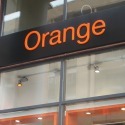
Also in today's EMEA regional roundup: Rootmetrics finds EE is still ahead of the 5G pack; how 5G can help anticipate landslides; blockchain for tower management.
Orange Belgium has opened its eighth 5G Lab in the port city of Antwerp, where the technology has already been extensively put through its paces in the service of so-called "Industry 4.0." The lab's radio network is directly connected to the Orange 5G core system, making it relatively easy to develop and scale up new 5G "use cases" or applications. At the official opening, Orange demonstrated a robotic arm that can be controlled remotely via smart glasses connected to the Orange 5G network.
The latest Rootmetrics report on 5G in the UK concludes that while BT-owned EE is still ahead of the pack in terms of download speeds and availability, the pack – namely Three, Vodafone and Virgin Media O2 – is starting to catch up. The report, which looked at 5G performance in five cities in the Northern and Midlands regions of England, found that EE was the only operator to offer 5G availability of more than 40% in more than one city (Sheffield and Nottingham), though its availability generally had actually decreased in all five cities since the first half of 2021. Vodafone was the only operator to have improved both availability and speed in every city covered, with the fastest speeds in Coventry and Nottingham – though in Nottingham 5G only reached availability of 0.5%.
Meanwhile, further south, Vodafone's 5G network is playing a part in a new monitoring system that seeks to help anticipate landslides on Dorset's notoriously unstable "Jurassic Coast." The prototype 5G-powered universal device used in the project can house a range of sensors that allow academics, businesses and local authorities to adopt smarter approaches to monitoring environmental and public safety issues. It is also being used in a related "smart farming" initiative.
Telefónica Tech has joined forces with Atrebo to use Telefónica's TrustOS blockchain platform for the management of 200,000 telecom towers and related sites. According to Telefónica, the use of blockchain will bring greater transparency and traceability to towers operations.
Tempers flared at UK airports yesterday (Wednesday) as the online NHS Covid Pass, which is used to prove a person is fully vaccinated and safe to travel, was apparently overwhelmed by high traffic volumes, leading to would-be travelers being turned away from flights. As the BBC reports, NHS Digital admitted that the service was unavailable for more than three hours a result of a "technical issue with a global service provider."
The UK government has issued a "call for evidence" to help it better understand what wireless connectivity Britain will need over the next decade. Ultimately, any evidence gathered will feed into a Wireless Infrastructure Strategy document. If you have anything that might be pertinent, send it to: [email protected].
On the fixed-line side, the UK government is patting itself on the back for helping to get fiber broadband to more than a thousand schools in hard-to-reach areas. Taxpayers' money was used to fund these otherwise unviable connections, and a further 884 schools have been earmarked to get the treatment by March next year.
— Paul Rainford, Assistant Editor, Europe, Light Reading
Read more about:
EuropeAbout the Author(s)
You May Also Like











